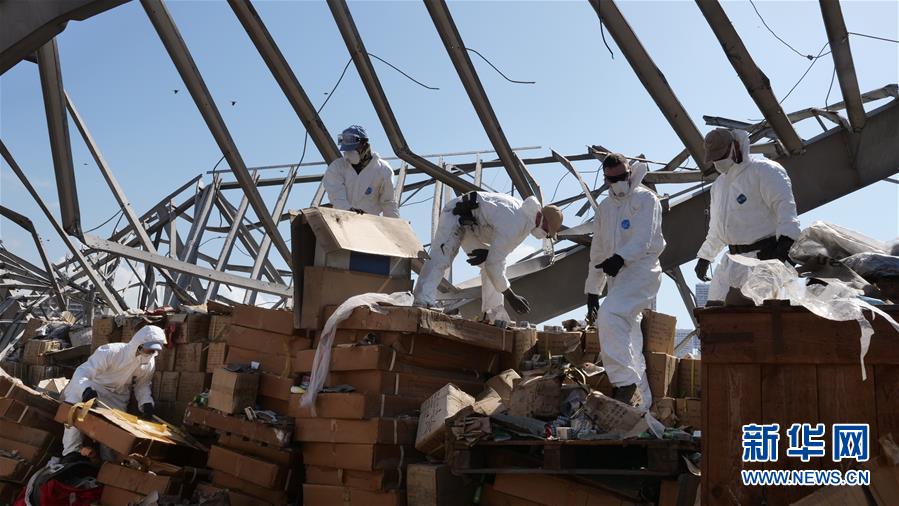
BEIRUT, Oct. 9 -- After a week of continuous work, peacekeepers from China, France, Italy, Spain and Cambodia have completed the demolition of all damaged buildings and the recovery of usable materials in the Beirut Port. At the same time, tasks of cleaning up and searching for collapsed historical monuments and cultural relics in downtown Beirut City have also been completed.
Two huge explosions rocked Port of Beirut on August 4, causing heavy casualties. Assigned by the UN Interim Force in Lebanon (UNIFIL), China's 19th peacekeeping multi-functional engineering contingent to Lebanon sent part of its peacekeepers to carry out the cleanup and reconstruction in Beirut Port since September 30.
Forty-one Chinese peacekeepers participating in the mission were divided into two groups and worked simultaneously in the Beirut Port and the urban streets.
"This is the first time for our peacekeeping troops to perform tasks outside the mission area. In the beginning, we were quite worried about the local security situation and misunderstanding by local people. Besides, the COVID-19 outbreak was also relatively serious in Beirut. But we found that the locals were very friendly and they gave us great confidence in completing this task,” said Gou Haolin, commanding officer of the construction company.
The UNIFIL peacekeeping forces are mainly responsible for cleaning up the ruins of the explosion in the Port of Beirut, recovering materials, repairing and strengthening the damaged buildings of the Foreign Ministry of Lebanon.
The peacekeepers are exposed to many risks in the clean-up operation in the Port of Beirut. “Fragments of collapsed steel frames would fall at any time and many dangerous goods were buried under the ruins”, said Wu Chunlin, a Chinese peacekeeper.
Over the past week, peacekeepers of the manual operation team retrieved more than 30 barrels of flammable fuel, fireworks, and four gas cylinders under the ruins in the port.
Cleanup of ruins in urban streets in Beirut in which the Chinese peacekeepers also participated was completed on October 5. Coral rocks and black ancient bricks with a history of more than 150 years, as well as jewelries found under the debris have all been handed over to the local government.









